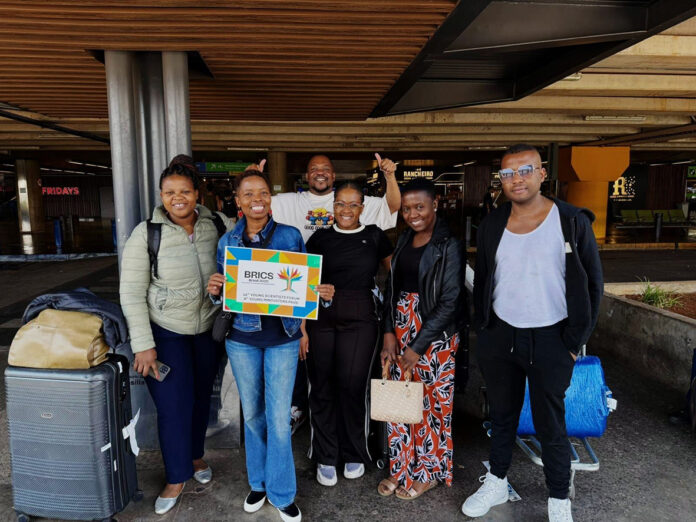A delegation of nine young South African scientists recently returned home inspired and equipped with new international partnerships after representing the nation at the 10th Brics Young Scientist Forum and 8th Young Innovators Prize in -Brasilia from September 15 to 17.
The delegates, selected by the Department of Science, Technology and Innovation, and the Academy of Science of South Africa from a highly competitive field of 256 applications, showcased ground-breaking work addressing critical global challenges.
The forum, a premier platform for expanding scientific cooperation among young -researchers from Brics nations, focused on three key themes: climate change mitigation, science diplomacy, and artificial intelligence for societal solutions.
The South African cohort made a significant impact across all themes.
Beauty Shibiri from the University of Limpopo, who presented on using AI to investigate new materials for Li-ion battery cathodes, described the event as “nothing short of beautiful”.
She noted, “All the presentations were filled with impeccable strategies on how to alleviate common Brics problems… If indeed all the solutions… are implemented… then surely, we can have a future that is sustainable.”
The forum’s emphasis on building transnational research networks was a key takeaway.
Babalwa Tyabashe Phume, of the universities of Stellenbosch and Johannesburg, who presented on disability-inclusive science diplomacy, is already formulating collaborative projects with scientists from Russia and Brazil.
“The dialogues reinforced my belief that meaningful solutions must be co-produced with communities and guided by principles of equity and justice,” she stated.
On the climate change front, Sean Perry of AMD Solutions pitched his innovation on using indigenous plant-based nan0composites to treat acid mine drainage.
He highlighted the power of collective problem-solving, saying: “No single nation holds all the answers, but together we can weave complementary expertise into robust strategies.”
Echoing this sentiment, Sina-lo Mani from the Agricultural Research Council, who researched the climate-resilient potential of goat microbiomes, valued the discussions on “linking research, entrepreneurship, and policy, reaffirming that
science should not remain in laboratories but directly benefit communities.”
Beyond traditional research, the event also celebrated entrepreneurship.
Mxolisi Booi, founder of Clinch, participated in the Young Innovators Prize pitch with his patient support innovation. Coming from a nursing background, he found it an honour to share a platform with scientists.
“The opportunity to represent both nurses and patients… was deeply personal,” Booi shared, adding that the experience confirmed the global relevance of tackling chronic-care adherence.
The resounding consensus among the delegates is that the forum successfully cultivated a cohort of innovative thinkers prepared to drive progress.
As Shibiri put it, the experience proved that “only the Brics can mutually solve the Brics’ common challenges together for a better tomorrow”.
The connections forged in Brasilia promise to strengthen South Africa’s scientific impact and foster long-standing collaborations within the Brics scientific community.



